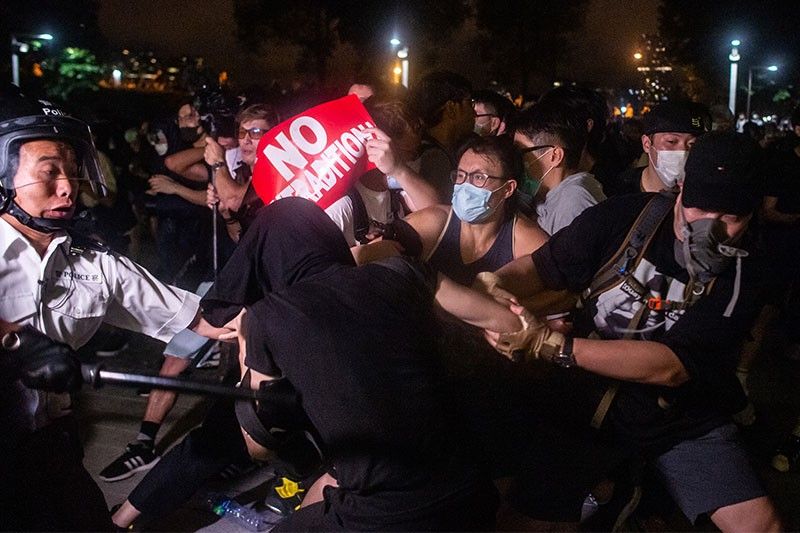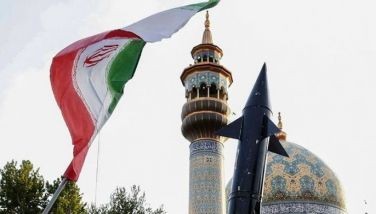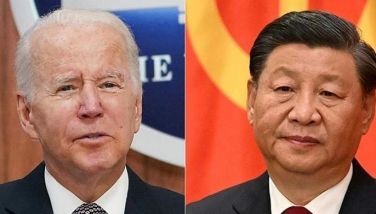Violence mars end of huge Hong Kong protest against China extradition

HONG KONG, China — A huge peaceful protest in Hong Kong against controversial plans to allow extraditions to the Chinese mainland descended into violence early Monday as police fought running battles with small pockets of demonstrators.
Organisers said more than a million people took part in the Sunday march -- the largest protest since Hong Kong's 1997 handover to China -- confronting the city's pro-Beijing leadership with a major political crisis.
The city government is pushing a bill through the legislature that would allow extraditions to any jurisdiction with which it does not already have a treaty -- including mainland China.
The proposals have sparked an outcry and birthed an opposition that unites a wide cross-section of the city.
Sunday saw huge crowds march in blazing summer heat through the cramped streets of the financial hub's main island in a noisy, colourful demonstration calling on the government to scrap its planned extradition law.
The march passed without incident.
But shortly after midnight violence flared as police moved to clear small groups of protesters who had vowed to stay overnight outside parliament.
Demonstrators hurled bottles built barricades as police moved in moments after the protest permit expired.
Officers used pepper spray hoses to push the crowds back, who shouted "We have a right to protest!"
Skirmishes continued overnight as protesters and police played cat and mouse in the nearby streets.
The scenes were reminiscent of 2014, when police used tear gas against pro-democracy demonstrators, setting off two months of demonstrations that took over key intersections of the international finance hub.
Record rally
Just hours earlier protesters had been celebrating the huge turnout, hoping it would prompt the government into rethinking the law.
"The government cannot ignore these numbers," protester Peter Chan, 21, told AFP. "If they really choose not to response to our demands we will not rule out more action."
For more than six hours on Sunday dense crowds snaked their way through the city chanting "Scrap the evil law!" and "Oppose China extradition!"
Police, who historically give much lower figures than organisers, put the peak crowd size at 240,000 -- still their second highest estimate for attendance at a protest since handover.
The city's population is around 7.3 million and the organiser figure for Sunday's protest outstripped 2003, when an estimated half a million demonstrators forced the government to shelve a deeply unpopular national security law.
Will crowds sway leaders?
But it is unclear if the financial hub's current leadership will be moved. The city's appointed leader Carrie Lam has staked her political reputation on the bill.
Ignoring the protests could fuel public anger or prompt more widespread clashes, with organisers saying they would "upgrade their actions" if the government did not drop the bill.
But backtracking by Lam might embolden opponents and anger Beijing. Several senior Communist Party leaders in China have voiced support for the bill.
In a statement late Sunday the government showed no sign of compromise, urging legislators to proceed with the bill's second reading on Wednesday.
Opposition to extradition has come from a wide political and social spectrum.
Lawyers, business groups, activists, journalists and western powers have all voiced alarm.
Hong Kong's leaders say the law is needed to plug loopholes and stop the city being a bolthole for mainland fugitives.
They say dissidents and critics will not be extradited and have urged the bill's quick passage to extradite a Hong Kong man who is wanted in Taiwan for murdering his girlfriend.
But critics fear the law would entangle people in China's opaque and politicised court system, and say the government is using the Taiwan case as a Trojan Horse.
Fading trust
In recent weeks Lam's administration has made some key concessions.
They have removed nine economic crimes from a list of extraditable offences and said that only offences that carry seven years or more in jail will be considered, up from three. Requests will only be considered from China's top prosecuting authority.
Those steps have received a cautious welcome from some business groups, but others have seized on the concessions as a tacit admission that China's courts are not impartial.
Many protesters on Sunday said they no longer trust the Hong Kong government to stick to promises that critics would never be sent to the mainland.
Suspicion of China was worsened by a series of high profile disappearances of people who later appeared in mainland detention, including a group of dissident publishers and a billionaire who disappeared from a top hotel.
Protester Leo Yuen, who said he worked in the arts sector, described the disappearances as "horrifying."
"You can forsee how easily this would happen again if the bill is passed," he told AF
- Latest
- Trending




























